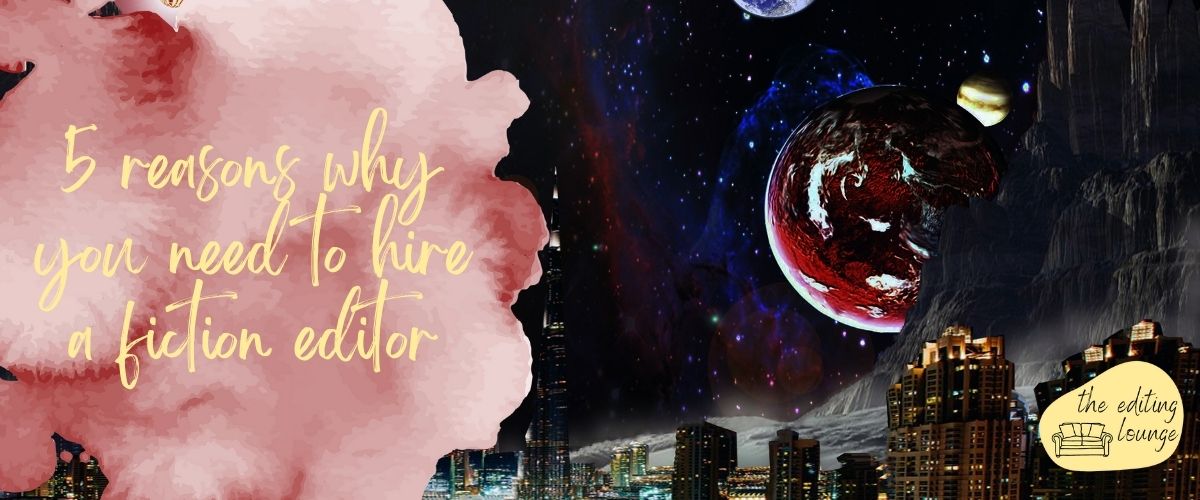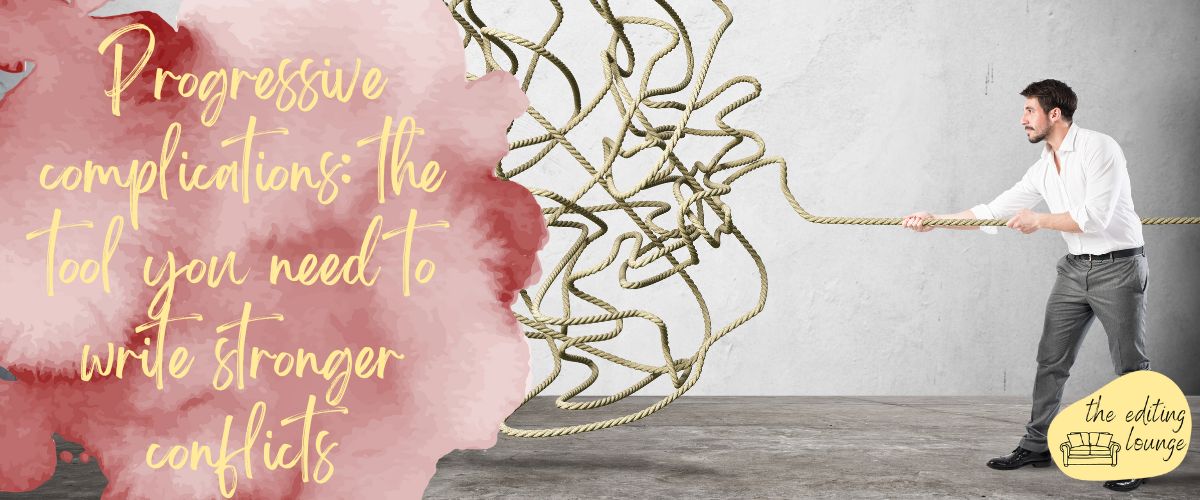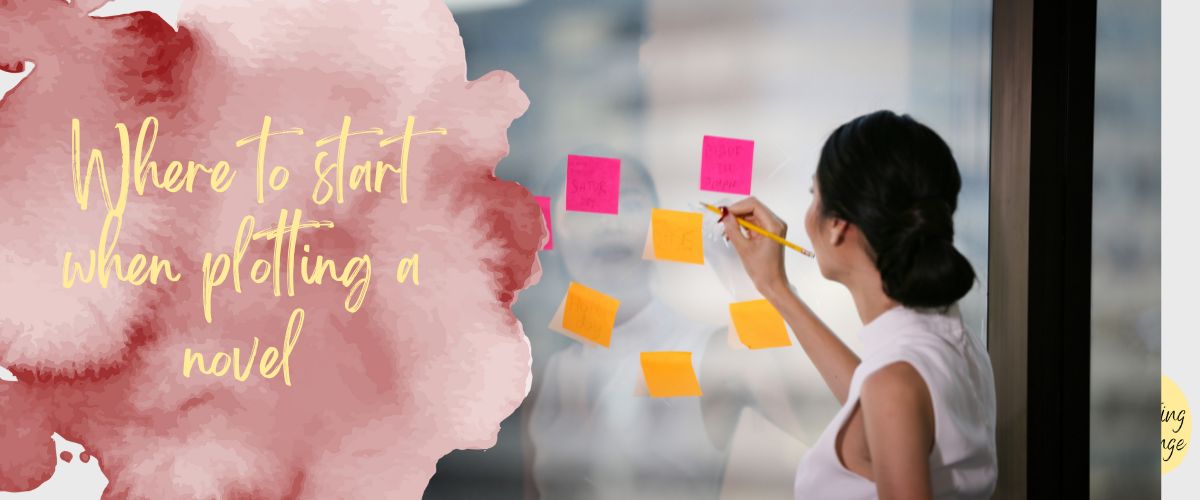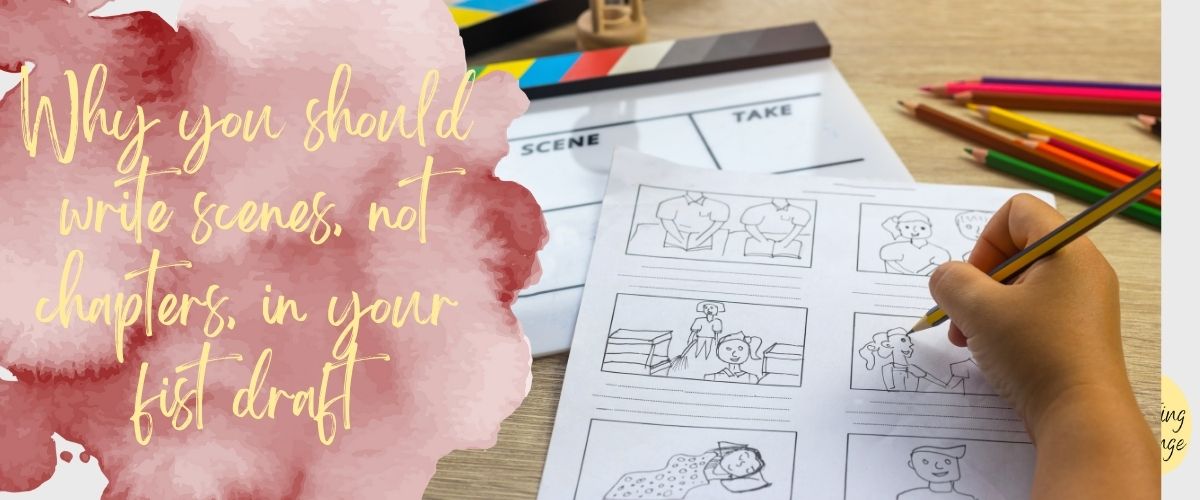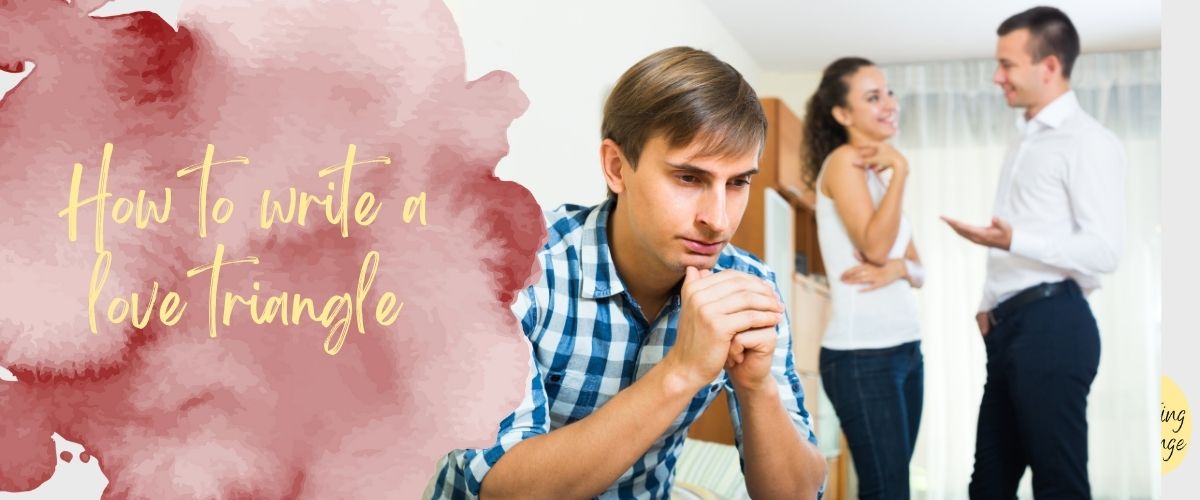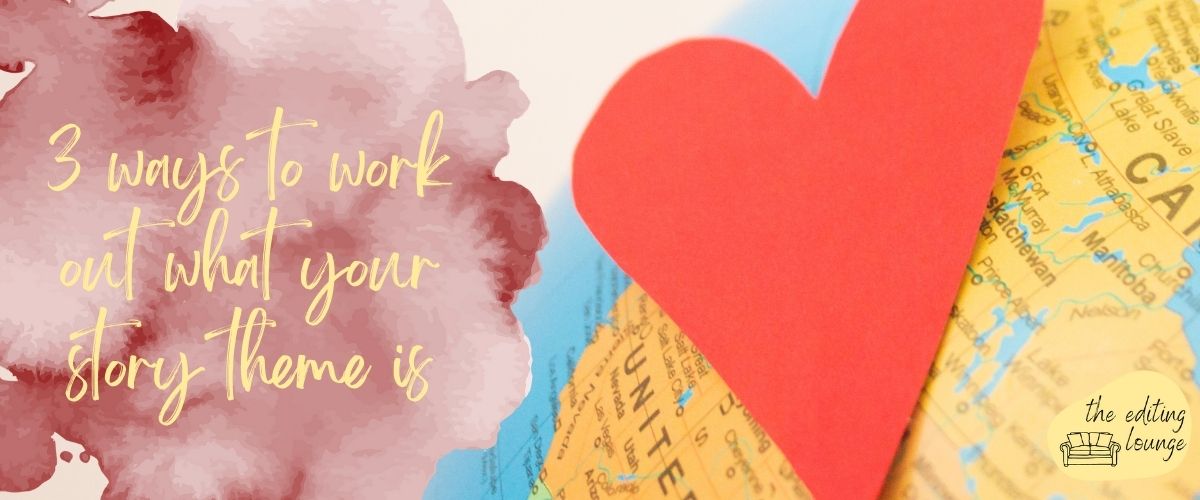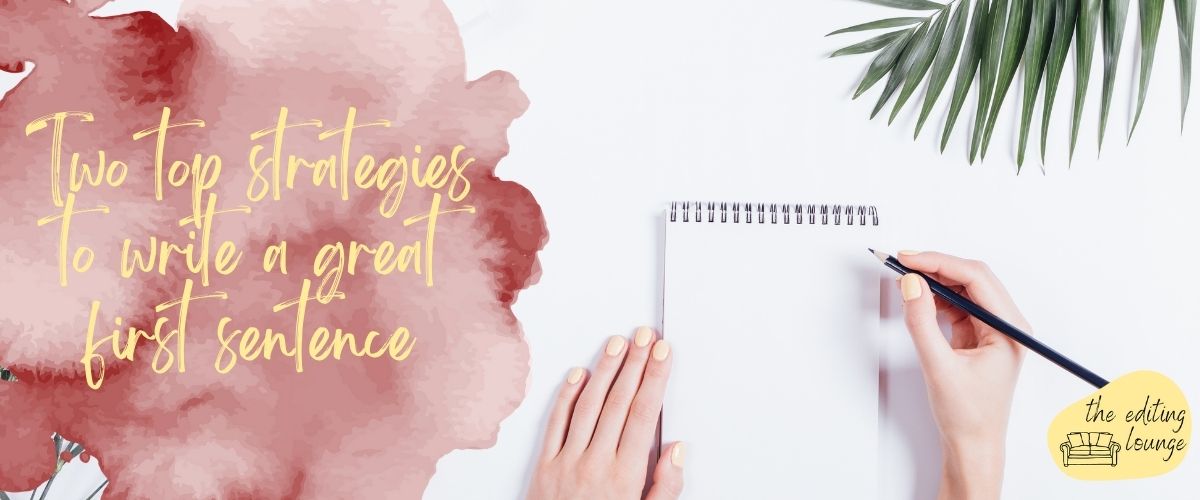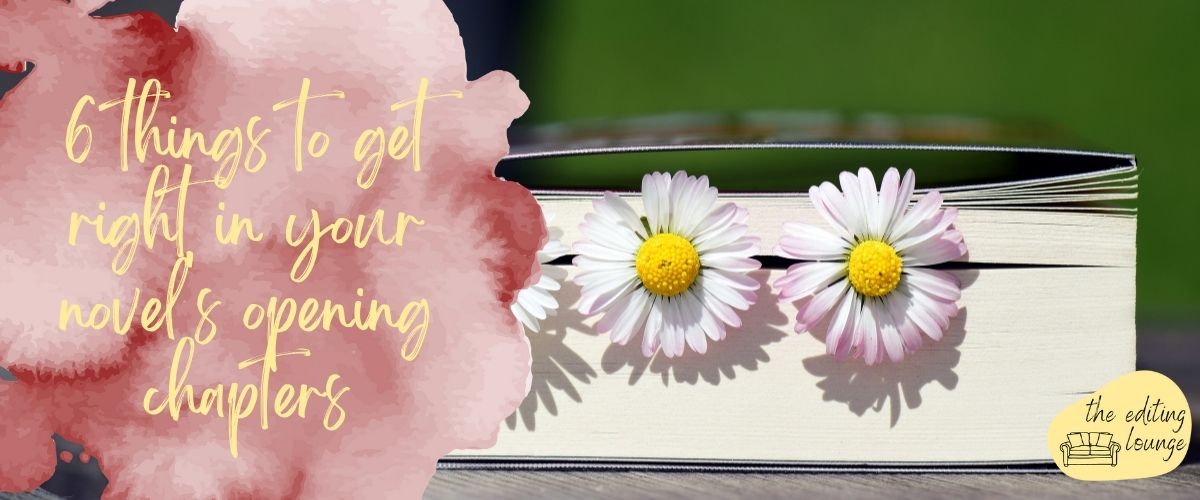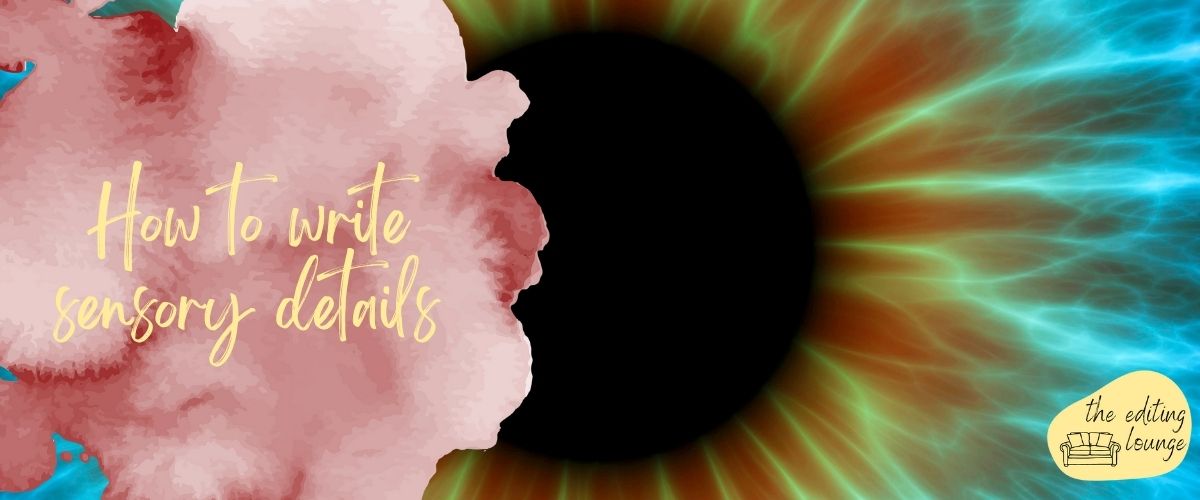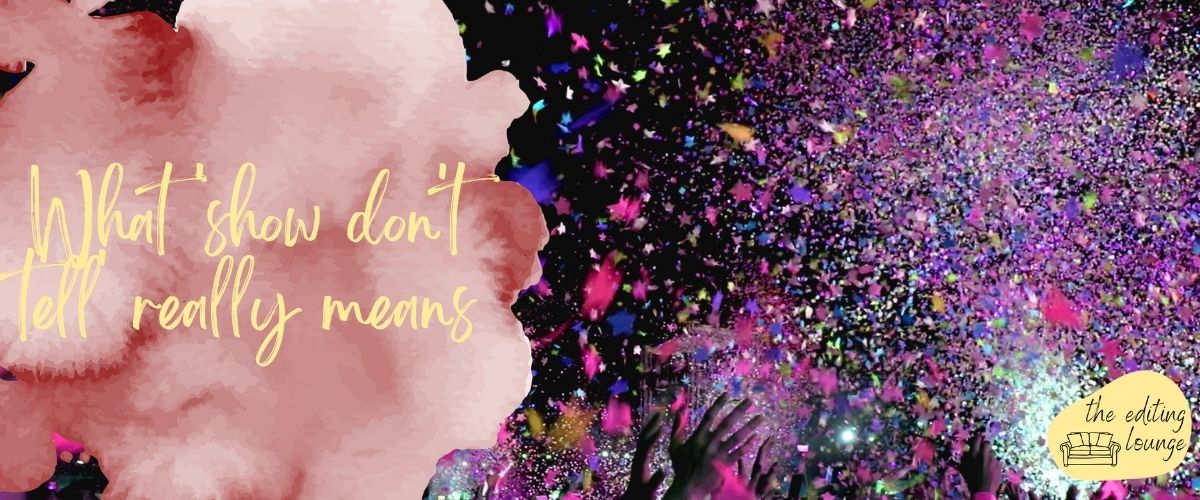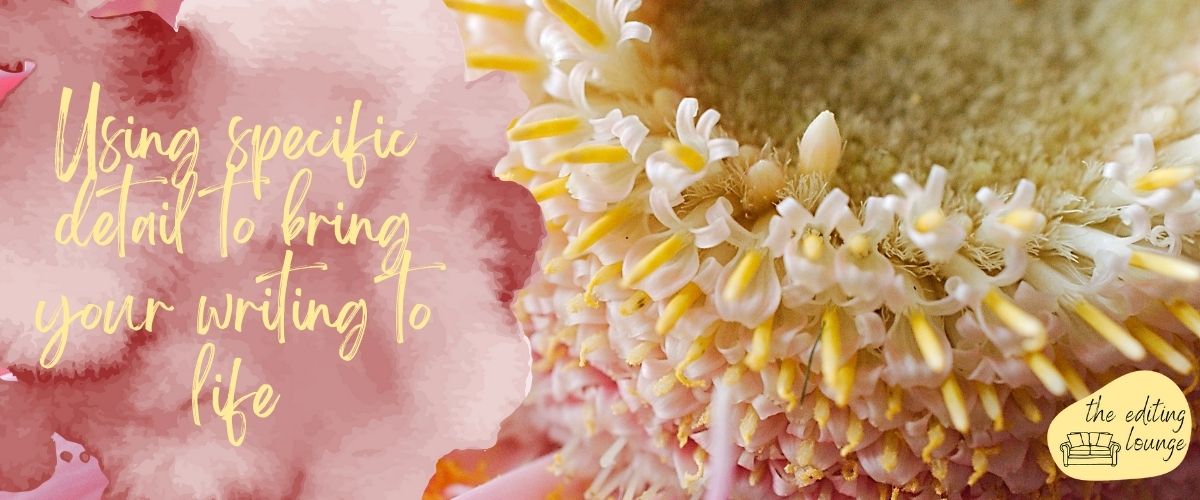It’s now easier than ever to publish our own works. While this is great in many ways, it also unfortunately means that the self-publishing market is overflowing with poor-quality books.
Anyone can write a book, but few can write a good one. Would you learn to play the violin without paying an instructor who’s had professional training? No. But plenty of writers throw themselves into the writing process without any training or hiring the help of an editorial professional.
You don’t have to fall into this trap, though. Working with a good editor will help your novel or short stories excel.
So, here you go: five reasons why you need a fiction editor.
1. A fresh pair of eyes

It doesn’t matter how experienced you are as a writer. When you’ve spent hours (days… weeks… months… years…) crafting your short stories or novel, it’s difficult to edit your own work.
This is because you internalise your writing. You become so used to your work that you miss those little things that aren’t clear, the repeated words, the plot holes.
That’s why even professional writers and editors need editors. Regardless of how much you’ve studied the craft of fiction, you need a fresh pair of eyes.
In short, everyone needs an editor.
2. An objective point of view
You know when you ask a friend to read your novel or short story and they tell you how good it is? That’s nice. But your work doesn’t improve.
A professional editor won’t be shy about critiquing your writing. Our goal is to help you make your novel or short fiction as strong as possible. An editor will point out the amendments you need to make before your readers let you know in their reviews.
That said, we’re not here to make you feel bad. A good editor will tell you the truth when something isn’t working, but they’ll also recognise how much time and effort has gone into your fiction and treat it with respect.
Our advice should be constructive and help you make your work as compelling as possible.

3. Save your frustration

Writing can be lonely. Self-editing can be even lonelier. It’s frustrating when you’ve revised and revised and revised, yet you know that your manuscript is still lacking that special something.
While it’s important to self-edit a few times before you hire a professional editor, a good editor should then give you a raft of opportunities to lift your writing to the next level.
For example, while a developmental editor will offer you big-picture story suggestions, a line editor or copyeditor will offer small, sentence-level changes that manicure each line.
If you’re not sure what kind of editor you need, take a look at this blog post.
4. Specialist advice
Lots of training goes into being a professional editor. For the record, I found my copyediting training with the Chartered Institute of Editing and Proofreading much harder to wrap my head around than both of my writing-related degrees put together.
So, as long as you hire a qualified editor (anyone can call themselves an editor – just check that they really are), you’ll hire someone who has the skills to help your writing excel.

5. Stir your creativity

A good editor will have lots of skills to help you nurture your writing. We’ll give you ideas to push against and discuss. We’ll make suggestions that give you the stimulus to come up with more of your own ideas and solutions. We’ll make you think.
Help your writing reach its potential
When you hire a fiction editor, you’re not just hiring someone to fix basic mistakes. You’re hiring someone who can uncover the stylistic issues that are hiding in your draft, breathe life into your manuscript, and help you improve your writing ability. We’ll talk all things characterisation, pace, structure, language, dialogue, description, imagery, world-building, flow, readability, formatting… the list goes on.
About Charlotte

Charlotte is an award-winning writer and line/copyeditor who writes and edits for clients all over the world. She also works on the fiction team for Ambit, a UK literary and arts magazine.
She holds an international literary prize from Hammond House Publishing Group, two writing-related degrees, various marketing certifications, and training certificates from the Chartered Institute of Editing and Proofreading, of which she is a Professional Member.
Charlotte’s work has appeared in several anthologies, magazines, and literary journals, including Indigomania, Dream Catcher, and The Curlew.
She has also created a series of free self-editing cheat sheets to help new writers hone their fiction before sending their work off to a professional editor.
Progressive complications: the tool you need to write stronger conflicts
Conflict is essential to stories of all kinds. A story can’t exist with conflict. If your character could get whatever they wanted at the beginning of the story, there would be no reason to write it. Whether you’re writing a novel or a short story, conflict is what keeps your story going, what keeps the…
Where to start when plotting a novel
It’s arguable that the most important thing a novel should do is follow an arc of change. If nothing changes, do you really have a story? So, perhaps the first step to take when plotting your novel should be to decide, at the simplest level, what’s going to change. That’s easier said than done, but…
Why you should write scenes, not chapters, in your first draft
Plotting and writing a string of chapters long enough to fill a book is daunting. It’s impossible to know how many chapters you’ll need. And it’s impossible to order all of your chapters before you start writing and feeling your way around. That’s why it’s much easier to write your first draft in scenes instead…
How to write a love triangle
Although readers love a well-written love triangle, writing one is easier said than done. Love triangles that aren’t carefully plotted often end up predictable and clichéd. But when well developed and carefully thought out, love triangles can be great, moving plot devices that strengthen your story. What is a love triangle? A love triangle is…
3 ways to work out what your story theme is
I don’t need to know what my story theme is, I hear you say. Just let me crack on with my writing. I know. Hitting pause to think about your theme doesn’t feel like a priority when you’ve got all these great story ideas to get down on paper. Plus, some writers feel that identifying…
2 top strategies to write a great first sentence
Regardless of which genre you write, your first sentence needs to seduce your readers. Perhaps your first sentence is an invitation. A promise. A tease. A shock. A declaration. Whichever approach you adopt, this sentence must be irresistible. It must hook readers and pull them into the page. (Remember that lots of potential buyers read…
6 things to get right in your novel’s opening chapters
Writing a novel is a massive undertaking, regardless of how many books you’ve already written. And, no matter how many how-to books you’ve read and how many fiction workshops you’ve attended, it’s easy to miss the fundamentals when writing your opening chapters. When you submit your novel to an agent or publisher, they will almost…
How to write sensory details
When we include sensory details in our writing, we can evoke our readers’ senses of sight, sound, touch, taste, and smell. This is because painting a strong scene in your reader’s imagination helps them pull similar scenes from their own memories. Here, we’ll explore the science behind why evoking the senses can be so compelling…
What ‘show don’t tell’ really means
Lots of editors are quick to tell writers ‘show, don’t tell’. But this advice has been given so many times that we often forget to explain what it really means. I’ll break down the concept here so you can make the most of this advice. In brief, ‘telling’ is explaining what’s happening. Meanwhile, ‘showing’ is…
Using specific detail to bring your writing to life
Adding detail is essential to writing great fiction. But how specific is the detail in your manuscript? If I had received a pound for every time one of my writing tutors circled a phrase in my fiction with a note saying ‘specific detail please’ during my MA days, I’d be rich. There are likely lots…



